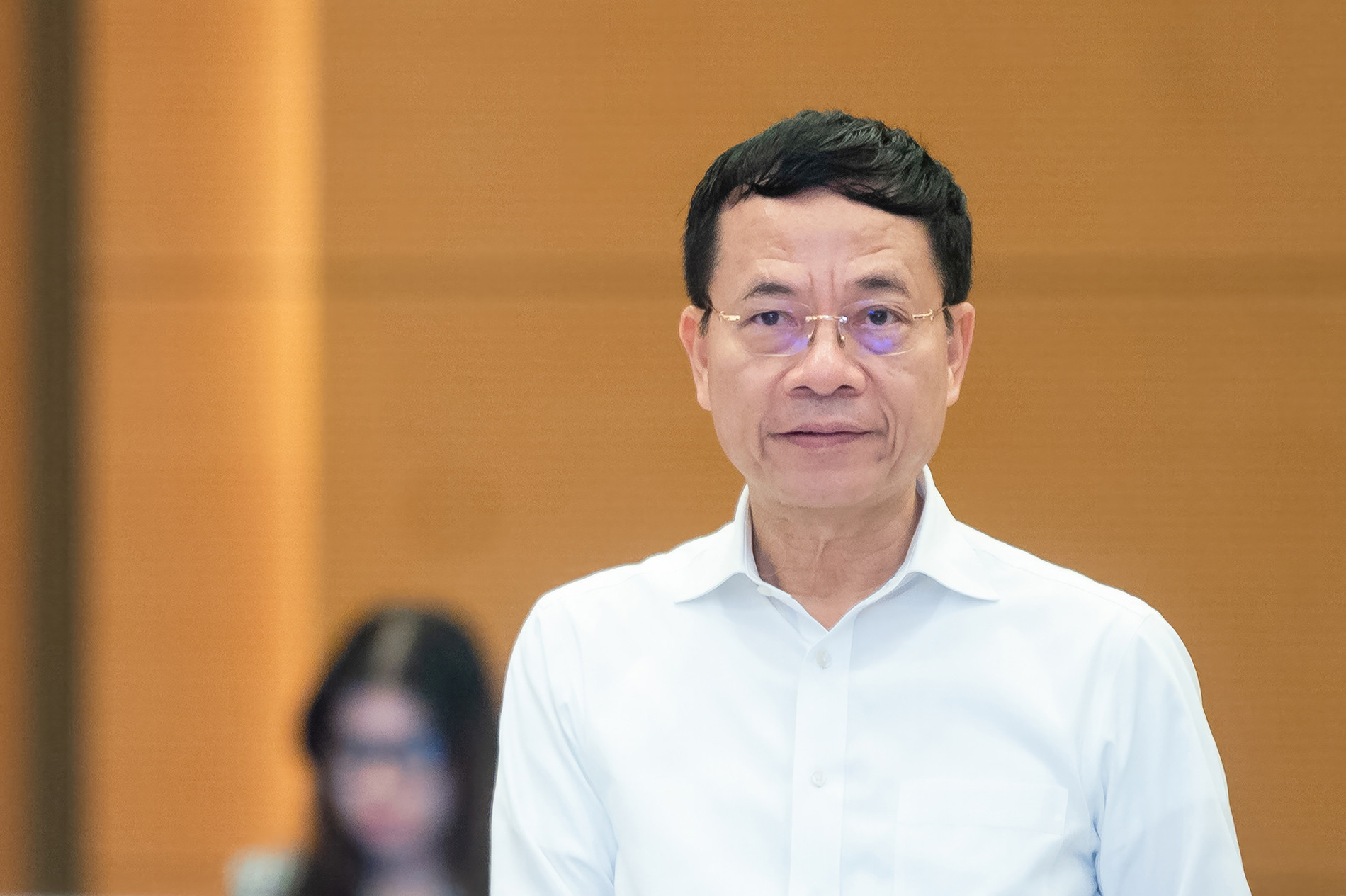On the afternoon of October 8, the National Assembly Standing Committee gave its first opinions on the draft of the Digital Technology Industry Law.

Minister of Information and Communications Nguyen Manh Hung. Photo: National Assembly
Presenting the government's proposal, Minister of Information and Communications Nguyen Manh Hung stated that the primary objective of the law is to transform the digital technology industry into a vital sector of the economy. The law aims to create the most favorable environment to nurture and grow digital technology enterprises.
Developing the digital technology industry, with a focus on Vietnamese enterprises, involves a gradual transition from assembly and outsourcing to creation, design, integration, production, and mastering core technologies in Vietnam. This shift will help build a digital government and serve as a driving force for the development of the digital economy and digital society.
This law will affirm the legal value of the digital technology industry and establish regulations and policies to promote its development.
In addition to institutionalizing the Party’s guidelines and the State’s policies regarding the development of the digital technology industry, this law also addresses current limitations and inadequacies. It does so by analyzing and evaluating the existing legal framework for the IT industry and IT services as currently enforced.
The law further proposes feasible policies, specifying a clear legal framework, particularly for digital technology products and services, to boost the industry's growth. It outlines special preferential treatment for digital technology investment projects, particularly those focused on key areas such as software, semiconductors, AI, and digital research centers.
Regulations on semiconductors and artificial intelligence
According to Minister Nguyen Manh Hung, the draft law clearly outlines essential elements needed for the development of the digital technology industry.
These include: research and development of digital technology, infrastructure for digital technology, a digital technology ecosystem, digital technology enterprises, digital products and services, technical standards and regulations, and human resources for the digital technology industry.
The law proposes incentives for developing research personnel, high-quality experts, and researchers. It also encourages the establishment of advanced research centers and laboratories.
The draft law emphasizes the importance of semiconductor development and artificial intelligence (AI), proposing changes such as replacing the term “microchip industry” with “semiconductor industry” to cover the entire scope of semiconductor activities.
Artificial intelligence and digital assets

Chairman of the Committee for Science, Technology, and Environment Le Quang Huy. Photo: National Assembly
Chapter 6 of the draft law is dedicated to artificial intelligence (AI), as it is regarded as one of the core digital technologies. The law defines AI, establishes principles for its development, and entrusts the government to further detail this content.
AI must serve human prosperity and happiness while ensuring transparency, accountability, fairness, and non-discrimination. It should respect ethical values, safeguard privacy, and promote security, safety, and responsible innovation.
The draft also introduces a section on digital assets, which are defined as intangible assets represented by digital data. These assets are created, stored, transferred, and authenticated using digital technology in electronic environments, and are legally protected as property rights under intellectual property law and civil law.
Chapter 4: controlled experimentation mechanism
This chapter outlines the principles for controlled experiments, authorities that grant permissions, and exemptions from responsibility for participating entities.
The draft law presents preferential policies for the digital technology industry, drawing reference from existing laws on investment, taxes, credit, and high-tech regulations. It also proposes additional, focused incentives for specific projects in key areas such as AI, semiconductors, and data processing centers.
Additional incentives needed
The National Assembly’s Science, Technology, and Environment Committee, led by Le Quang Huy, expressed its general agreement with the proposed law, noting that it aligns with the Party’s guidelines and government policies. However, the committee recommended clarifying the relationship between the new Digital Technology Industry Law and the existing Information Technology Law.
The committee also proposed exceptional incentives for the semiconductor industry, encouraging foreign investors to train local talent and transfer technology.
Regarding AI, while some believe a separate law on AI is needed, the committee supports embedding AI regulation within the draft law for now.
The draft Digital Technology Industry Law consists of 8 chapters and 73 articles, and is expected to be presented to the National Assembly for its first round of opinions at the upcoming 8th session.





